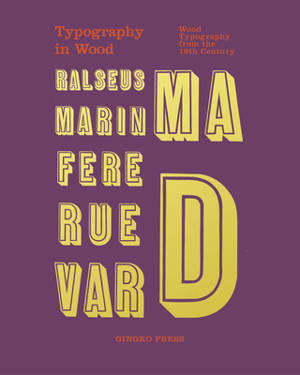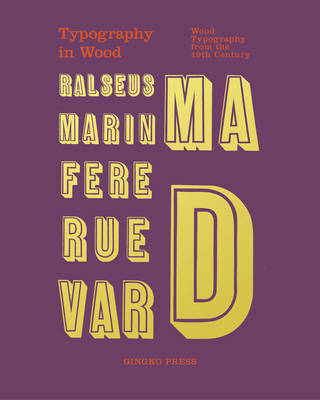
- Afhalen na 1 uur in een winkel met voorraad
- Gratis thuislevering in België vanaf € 30
- Ruim aanbod met 7 miljoen producten
- Afhalen na 1 uur in een winkel met voorraad
- Gratis thuislevering in België vanaf € 30
- Ruim aanbod met 7 miljoen producten
Zoeken
€ 62,45
+ 124 punten
Omschrijving
The first wooden letters for typographic reproduction on posters were craft-produced in the 18th century. Their use spread with the expansion of commercial advertising in the 1820s; production was mechanized and new types with increased visibility were created. In addition to dated products, series of surprisingly "modern" types were developed that could be com-pared with those generated by the "new" digital typography. This republication of the 1860s catalogue "Specimen de caracteres en bois de la maison Bonnet" demonstrates that letters, like buildings, incarnate the spirit of an age, while preserving a timeless quality that constitutes a lasting source of inspiration.
Specificaties
Betrokkenen
- Auteur(s):
- Uitgeverij:
Inhoud
- Aantal bladzijden:
- 206
- Taal:
- Engels
Eigenschappen
- Productcode (EAN):
- 9781584232667
- Verschijningsdatum:
- 10/12/2019
- Uitvoering:
- Hardcover
- Formaat:
- Genaaid
- Afmetingen:
- 234 mm x 292 mm
- Gewicht:
- 1270 g

Alleen bij Standaard Boekhandel
+ 124 punten op je klantenkaart van Standaard Boekhandel
Beoordelingen
We publiceren alleen reviews die voldoen aan de voorwaarden voor reviews. Bekijk onze voorwaarden voor reviews.











